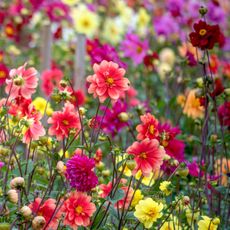5 Strategies For Repelling Pests Naturally

If you've got pest problems, it's easy and convenient to reach for a can of bug spray. The problem is that toxic chemicals are unhealthy for you and extremely bad for the environment. Usually, typical garden and household pests can be controlled by natural means. Here are 5 easy strategies for repelling pests naturally. Peppermint tea - If ants are a problem, try leaving a few used peppermint tea bags in areas where you notice ants are active. Peppermint also repels spiders, whiteflies and aphids. For an extra boost of minty aroma, place a drop or two of peppermint oil directly onto the used teabag. Dill - If your vegetable garden or flower bed is inundated with pests, try planting dill. The pungent herb will discourage aphids, squash bugs and spider mites. Dill also attracts beneficial insects that help keep pests in check. For example, tomato hornworms are attracted to dill, so a plant located near your tomatoes will help draw the pests away from your prized tomatoes. Caterpillars of beautiful swallowtail butterflies are also attracted to dill. Garlic - Poke a few garlic bulbs between vegetable plants and gardens. The garlicky aroma will deter aphids, fleas, root maggots and Japanese beetles. Harvest the garlic when it matures, then replant the bulbs or bring a few indoors and use them for cooking. You can also blend garlic bulbs and water to make an effective bug spray. Strain the solution, then add a drop or two of liquid dish detergent. The spray will kill ants, beetles, whiteflies, aphids, slugs and caterpillars. Diatomaceous earth - Sprinkle diatomaceous earth on the soil wherever slugs and snails are a problem. The natural, powdery remains of tiny aquatic organisms are gritty and will kill pests by abrading their slimy skin. Diatomaceous earth is also effective against other crawling pests, including ants, fleas, spiders and earwigs. Rosemary - Plant rosemary in pots to deter flies and mosquitoes from your outdoor get-togethers. When planted in your garden, rosemary discourages slugs, snails, carrot flies, cabbage loopers, been beetles, slugs and snails. The dried, crumbled leaves are also an excellent form of pest control, both indoors and out.
Gardening tips, videos, info and more delivered right to your inbox!
Sign up for the Gardening Know How newsletter today and receive a free copy of our e-book "How to Grow Delicious Tomatoes".

A Credentialed Garden Writer, Mary H. Dyer was with Gardening Know How in the very beginning, publishing articles as early as 2007.
-
 Cut Flower Garden For Beginners: 8 Easy Decorative Floral Plants For Newbies To Grow
Cut Flower Garden For Beginners: 8 Easy Decorative Floral Plants For Newbies To GrowAre you new to growing decorative florals for bouquets and ornamental displays? A cut flower garden for beginners is well within reach if you grow these flower seeds
By Tonya Barnett
-
 10 Flower Seeds To Sow In April For Endless Blooms Through Summer & Fall
10 Flower Seeds To Sow In April For Endless Blooms Through Summer & FallDiscover the best annual and perennial flowers to plant in April to ensure a sea of color in borders and containers that lasts all summer and into fall.
By Bonnie L. Grant